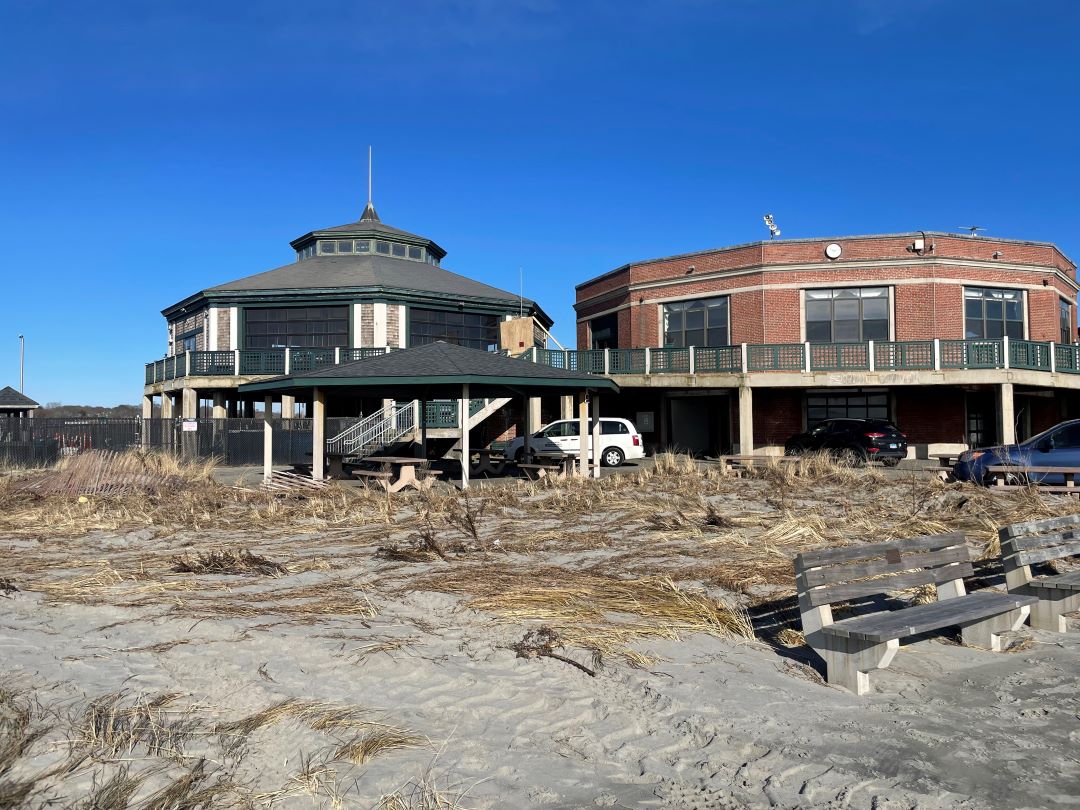Failures of R.I.’s Climate Response Highlighted at Public Forum
April 19, 2019
PROVIDENCE — What started as a humdrum recounting of Rhode Island’s initiatives and shortcomings to address climate change, turned into an indictment of the entire process and criticism of several of the speakers at a recent climate-change symposium.
The April 15 Publick Occurrences forum was promoted as a discussion of climate-change solutions, but audience members pointed out the failures and hypocrisy of institutions and some of the panelists.
One of the panelists, Barnaby Evans, founder of WaterFire Providence, was questioned about the carbon and other greenhouse-gas emissions created by the burning of wood at the popular downtown event.
Another panelist, Nicole Hernandez Hammer, a community health expert who studied and advocated for environmental justice in the South, said she was shocked by Rhode Island’s lack of diversity among political leaders, environmental groups, academia, and the audience before her in the Rhode Island College auditorium.
“It’s really, really disappointing and I think it’s going to get in the way of the goals of equity and true climate resilience,” Hernandez Hammer said.
Monica Huertas, also a speaker and an organizer for No LNG in PVD, noted that people of color are absent from the local Green New Deal movement and underrepresented in local organizations such as the Sierra Club and Audubon Society.
“People of color are going to be affected the most and the longest,” Huertas said. “That inequity and imbalance is all around.”
A minor power struggle broke out when activists from Sunrise RI stood and held a banner advocating for the Green New Deal. As security moved in to stop the protest, Huertas argued that they stay, and emcee Mike Ritz relented.
Grover Fugate, executive director of the Coastal Resources Management Council, had to defend his agency’s approval of a controversial liquified natural gas facility being built on the city’s waterfront.
When Fugate was asked by an audience member if Mother Nature knows that a bureaucratic loophole allowed the project to get approved, he replied, “Mother Nature does not know that and I can assure you she’ll teach us many lessons before it’s over with.”
“She’ll teach the people of South Providence many lessons, the people who live there and who are going to be impacted the most,” interjected Huertas, who interrupted other panelists with reminders of the ongoing injustices caused by pollution from local companies and climate change.
Peter Galvin of Nature’s Trust Rhode Island, the organization overseeing a youth-led lawsuit against the state, noted that Rhode Island Department of Environmental Management director Janet Coit could act on a proposals to decisively address climate change, but that progress won’t happen without support from Gov. Gina Raimondo.
Coit replied that she can’t discuss the lawsuit. But she touted Raimondo’s commitment to renewable energy and the state’s success with energy-efficiency programs and the money these projects receive from the Regional Greenhouse Gas Initiative.
Coit offered the revelation of the night when she encouraged more pressure on her agency to act on climate change.
“The lawsuit is pushing the direction we need to be going,” she said.
Coit noted that lawsuits, dialogue, and community engagement forces state agencies to look beyond their narrow directives and augment broader change. “And I welcome that,” she said.
Public messaging was another topic of considerable debate. Hernandez Hammer and Sunshine Menezes, executive director of the University of Rhode Island’s Metcalf Institute, said listening and telling stories tailored to an audience was effective at promoting change.
Evans noted that artists of all mediums can deliver climate urgency through their work. But, he added, so-called “dark money” from the fossil-fuel industry is undermining democracy by manipulating politicians and the facts about climate change.
“It’s very hard to fight them,” Evans said.
Coit agreed.
“I think that is insidious and it’s true,“ she said. “People can no longer listen and engage and (the rhetoric) is amplified through social media attacks.”
Developer Mark Van Noppen, a panelist and president of the Armory Development Co., said the oil industry would be a more willing participant if there were “better rules” to follow. The business community as a whole “wants reasonable rules,” he noted.
He also noted the pervasive lack of empathy toward the climate crisis, as stats about sea-level rise and warming temperatures don’t seem relatable.
“It has to be boiled down to the most simple analogies that people can get their heads around,” Van Noppen said.




While the audience seems to have good intentions, I’ve heard about a lack of diversity in Audubon, Sierra and other environmental groups for decades, and I’ve heard the same concern expressed in some of my other interests such as mathematics. There is a simple solution, people not well represented in these groups should join them, I’m confident they would be welcomed.
I also want to push back against criticizing Waterfire, it does burn some wood, but in the scheme of things a small amount compared to the pleasure the events bring to so many, and the rare times diverse communities actually walk around together is also a good thing as it the tourist draw. Reminds me of the criticism of building libraries or symphony concert halls when there are those without enough food. Not having waterfires, libraries or concert halls would be a recipe for much drabber existence for all.
Another report noted that only one person in the audience came by bus, the rest apparently drove. That should be noted in reflecting the real difficulty of actually reducing environmental impact.
Tim, it was originally I who said, before Janet Coit responded to me, that I didn’t think it was appropriate for me to raise legal questions in this forum. I don’t want any of your readers to think that I tried to do that. Thanks. Pete Galvin